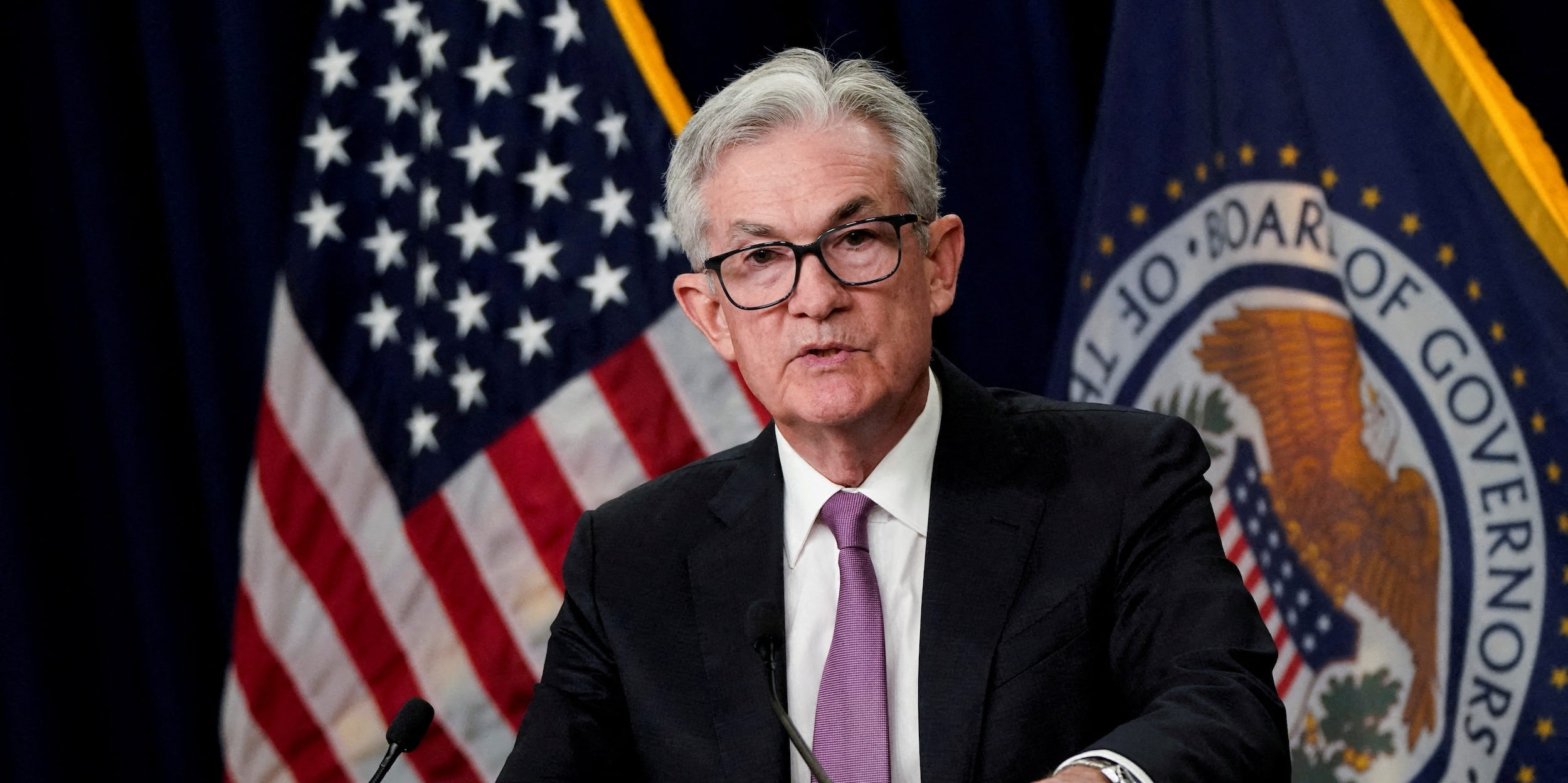The S&P 500 could fall as far as 3,200, according to technical analysis from JPMorgan. That would represent a decline of 20% from current levels. The gloomy outlook comes after Fed Chair Jerome Powell said bigger rate hikes are possible. Loading Something is loading.
Thanks for signing up!
Access your favorite topics in a personalized feed while you’re on the go.
In light of hawkish comments from Federal Reserve Chairman Jerome Powell, the S&P 500 could fall as low as 3,200, according to technical analysis from JPMorgan.
That represents 20% downside from current levels, and comes as the S&P is nearing a major threshold at around 3,900, which JPMorgan called a level of “critical confluence” given that the 50-, 100-and 200-day averages are converging roughly around there.
In a Tuesday note, JPMorgan analysts said the index’s gains early this year resembled a bear market rally and that a lower floor is now possible.
“A break below 3888-3971 support would not only validate that assessment in our view, but we suspect it can trigger an acceleration to the downside,” the note said.
On Wednesday, the S&P 500 entered that range, hitting an intraday low of 3,969.76 before closing slightly higher.
Analysts had previously pegged 3,500 as an area where the S&P 500 could find a bottom in the first half of this year.
“However, the hawkish repricing of Fed expectations on the heels of a string of better-than-expected data prints has increased the potential that the risk scenario unfolds, and the index drops toward support near 3200 before establishing a bottom,” they said.
Tackling inflation, Fed officials have raised interest to a target rate of 4.50%-4.75%. But recent data have indicated inflation remains sticky while a strong labor market is supporting consumer demand, suggesting tighter policy in the future.
In his testimony before the Senate Banking Committee on Tuesday, Powell noted the trend and said a more aggressive approach may be necessary.
“The latest economic data have come in stronger than expected, which suggests that the ultimate level of interest rates is likely to be higher than previously anticipated,” he said. “If the totality of the data were to indicate that faster tightening is warranted, we would be prepared to increase the pace of rate hikes.”
Still others, such as Fundstrat’s Tom Lee, are remaining bullish. On Wednesday, he reiterated his view that markets may still see a 20% gain from current levels as inflation continues to cool off.
